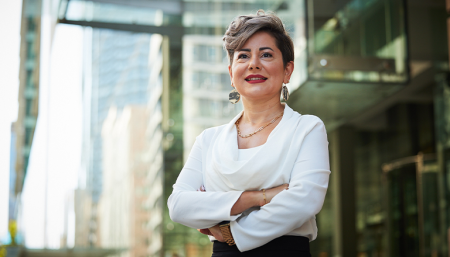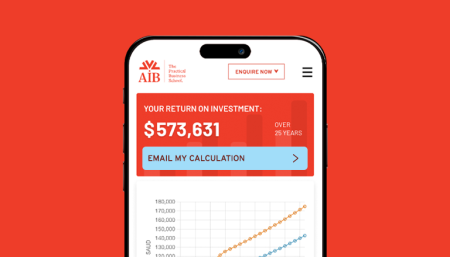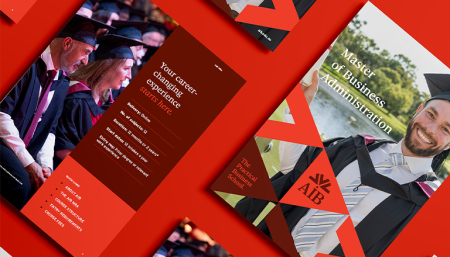5 Booming Industries in Melbourne to Watch

With a reputation for creativity and innovation, Melbourne stands out among Australia’s most progressive cities. Those qualities are reflected in the current Melbourne job market, where a number of industries are driving economic growth and opportunities.
In 2025, five sectors stand out as the top industries in Melbourne: digital technology, life sciences, transport, creative industries and sustainability. While each sector is built on technical or specialist expertise, their momentum also relies on support from many other areas. This creates opportunities for professionals from diverse backgrounds to play a role in their success.
For anyone considering their next career step, or exploring where future business opportunities may emerge, these industries highlight the areas of strongest demand and long-term potential.
Digital technology
Melbourne has emerged as Australia’s leading tech city, with a digital technology sector that touches nearly every aspect of business and daily life. The city is home to over half of Australia’s top 20 technology companies, generating more than $34 billion in revenue.
A major strength of Melbourne’s digital technology sector is its expertise in software development. Melbourne is the second city in the Asia-Pacific for new software headquarters, behind only Singapore and ahead of Hong Kong and Sydney. Other digital technology strengths include market platforms, cloud technology, spatial technology and sensor networks.
The city also hosts one of the largest ICT R&D clusters in the Southern Hemisphere, producing commercially focused, world-leading research. Melbourne ICT companies develop everything from cybersecurity solutions and AI-powered software to enterprise systems and mobile applications.
With strong government support and a high demand for technology skills, Melbourne provides an ideal environment to build a technology-focused career or business. The city’s commitment to innovation and global competitiveness ensures that opportunities in the sector are not only growing but likely to remain in demand well into the future.
Life sciences
Melbourne is a global hub for life sciences and health technology, home to major companies, a growing startup sector and world-class research institutions. The industry spans pharmaceuticals, biotechnology, medical technologies, food science and healthcare, with over half of Australia’s ASX-listed life sciences firms based in the city.
A key strength is the Melbourne Biomedical Precinct, one of only five clusters of its scale worldwide. it employs more than 23,000 people across 30 medical, engineering and technology facilities working on infectious diseases, immunology, neuroscience, child health and cancer treatment. Alongside medical specialists, the precinct’s scale also drives demand for professionals in operations, logistics, marketing and human resources to support research and innovation.
Health technology is another fast growing industries in Melbourne, with more than 250 medtech companies and a digital health sector forecast to triple in size to $7 billion by 2030. This growth appeals to entrepreneurs and investors, while creating new roles for professionals who can navigate market dynamics and business scaling.
Transport
Victoria’s transport and logistics sector is growing rapidly, driven by rising manufacturing, online shopping, tourism and population growth. Increased freight and storage needs, combined with expanding public transport networks, are creating a wide range of career opportunities for logistics professionals.
With Melbourne projected to become Australia’s largest city by 2030, long-term transport planning and investment are critical. The Victorian Government is committing heavily to infrastructure that will meet the needs of a larger, more connected city. A $2 billion commitment will fund new, locally-made trains and trams, alongside major projects such as an underground rail tunnel and 50 level crossing removals. These projects are creating thousands of jobs through generating new contracts for local businesses and driving innovation in vehicle technology.
Smart transport systems are also transforming the sector, offering new opportunities for skilled employment and business growth. These developments provide long-term career options while contributing to a more sustainable transport network.
Creative industries
Melbourne’s creative industries form a vital part of Victoria’s economy and identity. This diverse sector includes arts and culture, film, literature, music, design, games, fashion and events.
The city is Australia’s premier destination for film and TV production, home to Docklands Studios Melbourne and the Melbourne International Film Festival, the second oldest film festival in the world. The screen industry contributes around $1.3 billion to the Victorian economy each year.
Melbourne is also a national leader in video games, hosting 53% of Australia’s digital games companies and more than 130 studios. Major International names like Electronic Arts, Gree, and Kixeye have established a presence. Thanks to the Digital Games Tax Offset and Victoria’s own rebates of up to 15%, the sector’s workforce and revenue have almost doubled in recent years.
Melbourne’ diverse events calendar is globally renowned and draws hundreds of thousands of visitors annually. Highlights include Melbourne Fashion Week, the Melbourne International Comedy Festival, Rising and the YIRRAMBOI First Nations Festival.
From producing world-class films and video games to hosting internationally recognised festivals, these industries showcase local talent to global audiences while also creating a wide range of career opportunities in creative, technical, production and event management.
Sustainability
Melbourne is a leader in the green economy, a sector focused on reducing environmental impact and building a more sustainable future while creating economic growth. The green economy includes renewable energy, urban sustainability, carbon services and circular economy initiatives.
Victoria has set world-leading targets to reduce greenhouse gas emissions and achieve net zero by 2045, building on ongoing efforts. The state has a strong mix of renewable energy technologies including solar, wind and wave power. Victoria is home to 30% of Australia’s renewable energy workforce, making it a hub for innovation and skilled employment.
Melbourne’s urban sustainability industry is thriving, with landmark green buildings and projects in energy efficiency, waste reduction and sustainable design. Global firms such as Aurecon have established their sustainability headquarters in Melbourne, managing major projects across Australia, New Zealand and Asia.
Collaboration between government and industry in this space is generating significant career opportunities in engineering, project management and environmental services. For businesses, it offers opportunities to innovate while meeting the growing demand for environmentally responsible products and services.
Melbourne’s fastest-growing industries are opening doors for professionals across a wide range of fields. Making the most of these opportunities requires foundational business knowledge and a versatile skill set. The AIB MBA combines practical learning with real-world application, preparing you for long-term success in the Melbourne job market.





